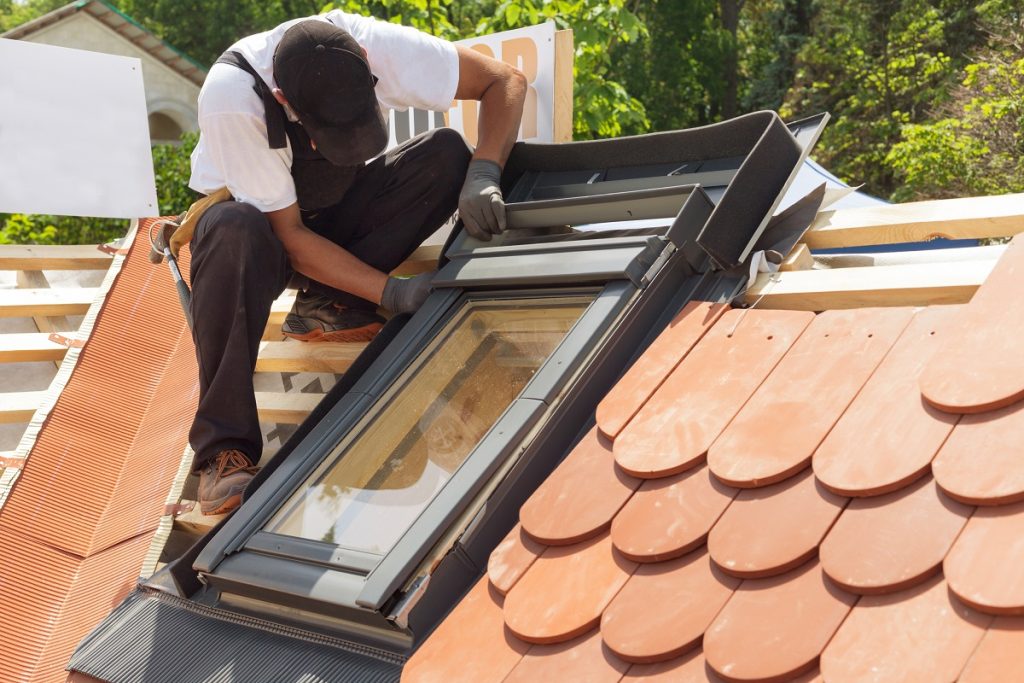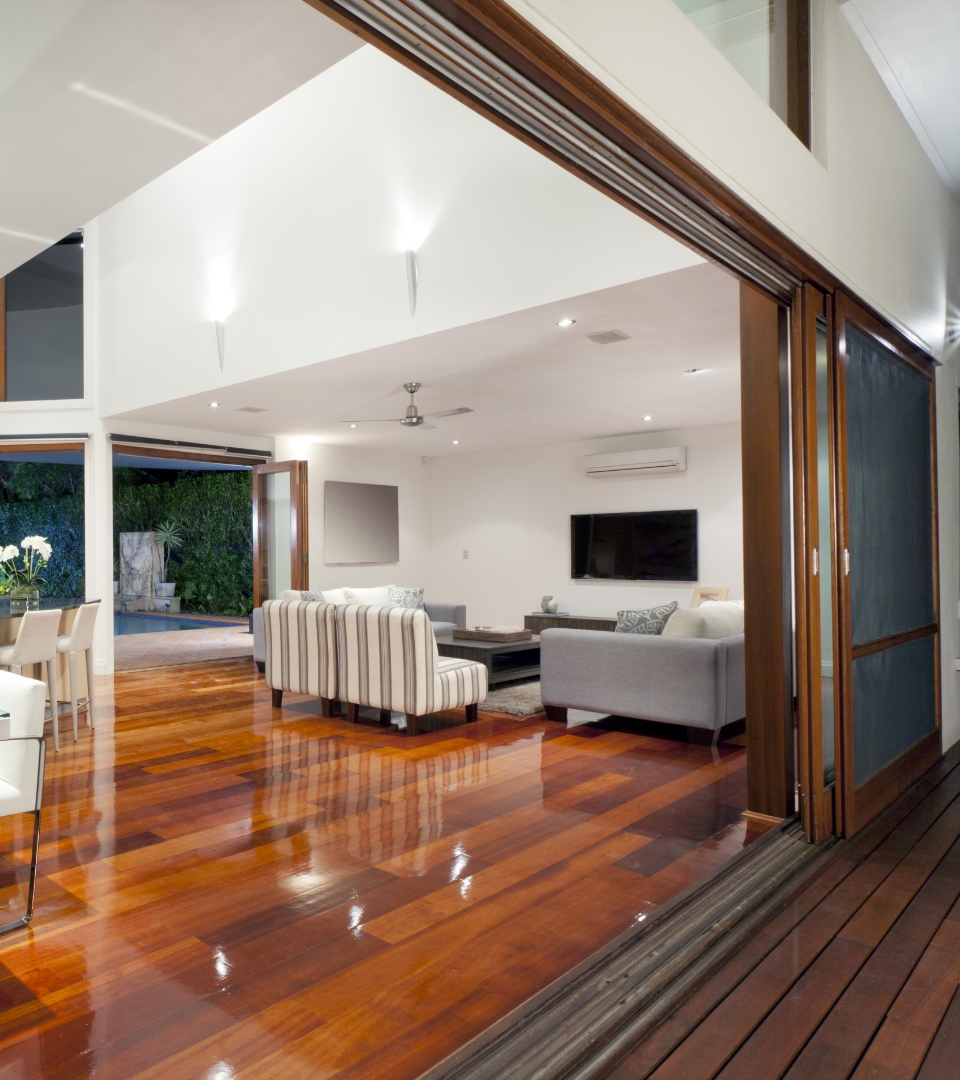Excel Glass specialises in Glass Solutions and is based a couple of minutes from Boucher Road in Belfast. Established in 1981, we have been trading in Northern Ireland for over 40 years. We manufacture and sell from a 56,000 sq ft purpose-built premises which houses a state of the arts showroom. We offer our services to the building trade, hotels, shops, government departments and of course the general public. We specialise in everything from uPVC Windows & Composite Doors to Bespoke Glass, Conservatories, Balustrades and much more in Belfast.
Search Results for: window & door
ASHI Group Ltd
With 50 years experience in the Home Improvement market, manufacturing your tailor made products in our UK factory, you can rest assured that you are transforming your home with a reliable brand. We are a National Company providing a local service with over 100 local showrooms. With over 1 million happy customers all over the country, Anglian Home Improvements is the market leader in double glazing and triple glazing, front and back doors, conservatories, orangeries, roof products and more .
- National company- local service
- Home Improvements – Windows, Doors, Conservatories, Orangeries, Extensions, Rooftrim & Garage Doors
- Robust & solid Guarantees on all our products
- Over 1 million customers, we are highly recommended
- Bespoke products-Made in Britain
Great Yarmouth Glass Ltd
* Established in 1952.
* Suppliers & installers of PVCu windows, doors & conservatories.
* BFRC Authorised Retailer of Energy Rated Windows.
*Certass Registered Installers.
* Suppliers of Pilkington & Solaglas Insulating Glass Units.
* Serving local government, building contractors & general public.
- Commercial aluminium shop fronts
- Glass merchants & glazing contractors
- Composite – PVCu & Bi-Folding Doors
- Secondary glazing systems
- Large showroom with retail counter
ASHI Group Ltd
With 50 years experience in the Home Improvement market, manufacturing your tailor made products in our UK factory, you can rest assured that you are transforming your home with a reliable brand. We are a National Company providing a local service with over 100 local showrooms. With over 1 million happy customers all over the country, Anglian Home Improvements is the market leader in double glazing and triple glazing, front and back doors, conservatories, orangeries, roof products and more .
- National company- local service
- Home Improvements – Windows, Doors, Conservatories, Orangeries, Extensions, Rooftrim & Garage Doors
- Robust & solid Guarantees on all our products
- Over 1 million customers, we are highly recommended
- Bespoke products-Made in Britain
ASHI Group Ltd
With 50 years experience in the Home Improvement market, manufacturing your tailor made products in our UK factory, you can rest assured that you are transforming your home with a reliable brand. We are a National Company providing a local service with over 100 local showrooms. With over 1 million happy customers all over the country, Anglian Home Improvements is the market leader in double glazing and triple glazing, front and back doors, conservatories, orangeries, roof products and more .
- National company- Local service
- Home Improvements – Windows, Doors, Conservatories, Orangeries, Extensions, Rooftrim & Garage Doors
- Robust & solid Guarantees on all our products
- Over 1 million customers, we are highly recommended
- Bespoke products-Made in Britain
ASHI Group Ltd
With 50 years experience in the Home Improvement market, manufacturing your tailor made products in our UK factory, you can rest assured that you are transforming your home with a reliable brand. We are a National Company providing a local service with over 100 local showrooms. With over 1 million happy customers all over the country, Anglian Home Improvements is the market leader in double glazing and triple glazing, front and back doors, conservatories, orangeries, roof products and more .
- National company- Local service
- Home Improvements – Windows, Doors, Conservatories, Orangeries, Extensions, Rooftrim & Garage Doors
- Robust & solid Guarantees on all our products
- Over 1 million customers, we are highly recommended
- Bespoke products-Made in Britain
ASHI Group Ltd
With 50 years experience in the Home Improvement market, manufacturing your tailor made products in our UK factory, you can rest assured that you are transforming your home with a reliable brand. We are a National Company providing a local service with over 100 local showrooms. With over 1 million happy customers all over the country, Anglian Home Improvements is the market leader in double glazing and triple glazing, front and back doors, conservatories, orangeries, roof products and more .
- National company- Local service
- Home Improvements – Windows, Doors, Conservatories, Orangeries, Extensions, Rooftrim & Garage Doors
- Robust & solid Guarantees on all our products
- Over 1 million customers, we are highly recommended
- Bespoke products-Made in Britain
Low Sightline Insulated Glass Units

The Glass and Glazing Federation recognises the rise in the number of Insulating Glass Unit Manufacturers producing narrow cavity IGUs with an edge-seal sightline of 5-6mm to meet the need for improved energy performance of windows within the Heritage Sector.
This has increased demand within the UK for windows and doors glazed with Insulating Glass Units with either cavity widths between 4mm and 8mm or edge seal sightlines (edge of glass to top to spacer-bar) below that normally used in the construction of IGUs or a combination of both. This demand is being created by local planning and conservation guidance that requires IGUs to be glazed into timber windows with through-glazing bars with lower than normal rebate depth.
The requirement for IGUs to be placed on the European market is regulated by the Construction Products Regulations (CPR). The IGU should be manufactured in conformity with the harmonised European Standard (hEN) EN 1279-5 and conform to all other parts of the series, EN 1279 parts 1 to 4 and EN 1279-6. In order to comply with this standard, Type Testing to EN 1279-2, ‘Long term test method and requirements for moisture penetration’ and EN 1279-3, ‘Long term test method and requirements for gas leakage rate and for gas concentration tolerances’, must be undertaken by the IGU manufacturer. IGUs with reduced sightlines below 8mm need to have achieved passes to both parts 2 & 3 when tested to these standards. There is also a requirement under EN 1279-4, ‘Methods of test for physical attributes of edge seals’, for the manufacturer of the edge-seal components to confirm that the manufactured edge-seal dimensions provide sufficient strength to enable the IGU to withstand the stresses exerted on it by wind-loading.
For an IGU to be durable and to provide a viable, economical service life, positive Type Test results for parts 2 and 3 are required and the edge-seal component manufacturers must provide confirmation that the construction is suitable by providing information in accordance with EN 1279-4.
The GGF’s position on the manufacture of IGUs is that all IGUs placed on the market in the UK must have achieved passes to EN 1279 parts 2 and 3, and have an EN 1279-4 component manufacturer confirmation. Any manufacturer producing these reduced sightline IGUs must meet the requirements of the CPR in Great Britain and Northern Ireland.
It should be noted that a majority of these reduced sightline IGUs are also manufactured with cavity widths of 4mm, 6mm or 8mm and although these cavity widths should not affect the results of EN 1279 part 2 testing, some concern has also been expressed regarding the ability of these narrow cavity IGUs to be gas filled within the concentration limits required and therefore their ability to achieve an EN 1279-3 pass.
Since the end of 2014, in an attempt to resolve the issues with planning specifications and the inability of low-sightline IGUs to achieve positive results when Type Tested to EN 1279 parts 2 and 3, the GGF have been in discussion with various groups and have given a number of presentations to Local Authorities in Scotland. These presentations have highlighted the issue of durability and early failure of this type of IGU and although positively received, these IGUs continue to appear as a condition in planning consents. The GGF’s primary focus has been to work with Historic Environment Scotland and help them review their Guidance, ‘Managing Change in the Historic Environment – Windows’ and guide planning officers, when replacing windows or in new build situation, towards using modern manufacturing specifications, thereby removing the demand for these non-compliant EN 1279 IGUs. The GGF have commented on the latest version of the guide and are now awaiting the amended revision to review before publication.
The GGF have also been involved with a number of other groups in an attempt to highlight the issues when installing this type of IGU. These groups include the Scottish Planning Enforcement Officers Forum, Local Authority Building Standards Scotland (LABSS), Head of Planning Scotland (HOPS) and the Energy Savings Trust. A number of meetings and discussions with MSPs have also taken place and we have acted on their advice in attempting to move this issue forward.
The GGF remain open to working with these groups in an attempt to educate Planning Officers, Building Control Officers and Trading Standards Officers to help provide end users (homeowners, Local Authorities and Housing Associations) to protect them from the potential significant future costs of early replacement of these non-compliant IGUs.
Thousands seek advice on botched home improvements
Nearly 4,000 people contacted Citizens Advice with window or door fitting problems in 2016, and the national charity has advice on how to avoid a similar fate.

Last year nearly 4,000 people contacted the Citizens Advice consumer service with problems related to having new windows or doors fitted in their homes, the national charity revealed this week.
In total the Citizens Advice consumer service assisted people with 40,000 problems related to home improvement or maintenance work in 2016. Two-thirds of those enquiries were about poor service, such as late completion of jobs or poor workmanship.
Gillian Guy, Chief Executive of Citizens Advice, said that thousands of people are seeking advice after home improvement jobs go bad.
“People trying to improve their homes are finding them in a worse state than before they started,” she said. “Dealing with botched jobs and unfinished work means many are left out of pocket and face huge disruptions to their lives.”
Citizens Advice recommends that people seek references before hiring a trader, and finding out if the trader/company is part of a trade body, as trade bodies have codes of practices and can help to resolve disputes if things go wrong. It also advises asking for a written contract and keeping copies of receipts.
Our advice – look for the GGF logo
MyGlazing.com urges all homeowners to use a GGF installer for their window or door home improvement work, as well as for other glass and glazing related work such as having a conservatory or new roofline installed.
This will ensure you not only get the job done right but you’ll also receive comprehensive consumer protection including free and automatic deposit protection and access to the GGF Conciliation Service in the unlikely event that a dispute arises.
The Glass and Glazing Federation is the leading trade body representing companies that make, supply or fit, glass and glazing related products in the UK. All GGF Member companies that sell directly to consumers must comply with the GGF Consumer Code of Practice
Read more:
- Why use a GGF Member company?
- About the GGF Consumer Code of Practice
- Your guarantees when hiring a GGF Member company
- 6 things to look for in a glazing company
- Top 10 tips before buying glazing products
GGF Appoints New Director of Home Improvement

The GGF is delighted to announce the appointment of Russell Day as Director of Home Improvement
Russell’s appointment follows the recent departure of Brian Smith who left the Federation last week after six years of service.
A trained engineer, Russell has worked in the window and door industry for 25 years, holding positions in sales, distribution, manufacturing, technical development and general management.
As Technical Director at Abbott Joinery he was involved in the development of market-leading new build PVC-u window and cavity closer systems. During this period he also worked in site installation, contract management and the development of supply chain procedures.
Russell next moved to an Italy-based composite material systems company before returning to the UK where he joined the Glass and Glazing Federation as a Technical Officer, before becoming Senior Technical Officer.
Russell is the currently Secretary of the GGF Heritage Windows Group, Hardware Group, Insulated Glass Manufacturers Group, Glazing Components Group and the recently created Systems House Group. He also chairs the industry’s Glazing Supply Chain Group.
On taking up his new role, Russell commented: “The Home Improvement sector is vitally important to the GGF and I’ll ensure that our Members continue to receive the best technical support and all the latest changes in Government policy and legislation. I am very much looking forward to taking on this role and progressing this side of the Federation’s activities.”
GGF Search for new Technical Officer

The GGF is currently seeking a new Technical Officer to join its expanding team of technical experts. As the industry authority, the GGF promotes best practice and sets the highest technical standards.
As a technical officer, you will provide expert technical support to GGF members and the general public including:
– undertaking site inspections
– reviewing and updating technical datasheets and other GGF publications
– undertaking consultancy work on behalf of the Federation
– providing secretarial support and facilitate specialist technical group meetings
– representing the interests of GGF members in external forums
The ideal candidate will have:
– expert working knowledge of relevant technical standards and building regulations
– previous experience in manufacturing or testing window and door systems
– previous experience in the window door and framing sector.
In return, the Federation is offering a highly competitive salary and generous employee benefit package.
If you have any questions or wish to discuss this role in detail, please contact, Steve Rice, Director of Technical Affairs, srice@ggf.org.uk or apply via CV and cover letter to clamba@ggf.org.uk.
Application deadline – 11 August 2017
GGF Consumer Survey Provides Useful Insights

The GGF recently commissioned an independent consumer survey and the final results have revealed some useful insights for the Federation and its Members.
The Survey conducted by One Poll was sent to 2000 homeowners across the UK who were asked 18 questions covering a range of topics including energy efficiency, competent person schemes and consumer codes.
On the release of the survey results, James Lee, GGF Director of Marketing and Communications said, “With all the work the GGF is doing to help consumer facing Members, it seemed logical for the GGF to survey consumers to understand and evaluate their views and opinions. The results have proved both insightful and encouraging.”
The GGF plans to use the results in several different ways.
Firstly, they will be used to support the GGF/MyGlazing.com consumer PR campaign. The survey’s results will also underpin the GGF’s political messages and ongoing activity. In addition, the GGF will use the survey to promote the GGF’s approved Consumer Code to both existing Members and wider industry.
A selection of the headlines from the survey are listed below:
Energy Efficiency
- 62% of consumers are unaware that more than 20% of heat energy in the home is lost through inefficient windows and doors
- On average, consumers believe only 17% of heat energy in the home is lost through inefficient windows and doors
- 37% are surprised to find that 23% of heat energy in the home is lost through inefficient windows and doors
- 51% of those surveyed say that knowing 23% of heat energy in the home is lost through inefficient windows and doors, makes them consider installing new windows and doors
- 54% of homeowners have energy efficient windows and doors installed
- Almost 75% would consider energy efficient windows and doors important when buying a new home
Consumer Code
- 30% said they have referred to a consumer code when making a purchase.
- 53.5% said they haven’t yet referred to a consumer code but would do in the future.
- 58% said that knowing a company’s ‘Consumer Code of Conduct’ had been approved by a Government-backed body such as the Chartered Trading Standards Institute would influence their purchasing decision
- Only 17% said they have never heard of a consumer code
General consumer views
- 57% would install new windows and doors to increase the value of their home; only 10% would never consider this as a means of increasing value
- 67% of homeowners spent some money on home improvements in 2016
- 62% have heard of a Competent Persons Scheme
- Energy saving tops the list of reasons why homeowners would install new windows, at 35%; 25% say money saving is their first priority, 14% want to keep out noise
- 29% of homeowners will consider making home improvements in the next 18 months
- Of those considering making home improvements in the next 18 months, top of the list of considerations is new windows at 33%
- 58% of homeowners distrust glazing/home improvement companies who contact them unsolicited
The GGF intends to conduct more consumer surveys in future to support myglazing.com content and to help steer the GGF’s future strategies for its support package for the benefit of its consumer facing Members.
The GGF Glossary
The Glass and Glazing Industry has thousands of products and components as well as companies. Due to its size and diverse nature, it’s also full of jargon and terminology that quite often varies from region to region, country to country, sector to sector and even in some companies from colleague to colleague.
The GGF Glossary is here to help anyone who needs help in understanding it all. It is by no means exhaustive and the GGF is aiming to update this page regularly. If you have and addition or feel something is missing then please contact the GGF and we’ll include it in the GGF Glossary.
| Term | Definition |
| Acoustic Glass : | Glass that has been treated to improve it’s soundproofing qualities |
| Annealed Glass : | Annealing is a process of slowly cooling hot glass after it’s been formed, to relieve residual internal stresses that could cause breakage during manufacture. Annealing glass improves it’s durability |
| Approved Documents : | The Ministry of Housing, Communities and Local Government publishes guidance called ‘Approved Documents’ on ways to meet building regulations. These contain: – general guidance on the performance expected of materials and building work in order to comply with the building regulations – practical examples and solutions on how to achieve compliance for some of the more common building situations |
| Argon gas : | Double and triple glazed windows, commonly have argon gas between the panes to improve insulation and soundproofing. Argon gas is put into the glazing units because it is denser than air and therefore has greater insulating values than air. |
| Astrigal bars : | These are thin wooden moudlings placed on glass to create a period look. They are often used to create the traditional Georgian window look. |
| Awning windows : | These are casement windows that are hinged at the top of the frame. |
| Building Regulations : | Building regulations in the United Kingdom are statutory instruments or statutory regulations that seek to ensure that the policies set out in the relevant legislation are carried out. Building regulations approval is required for most building work in the UK. Building regulations that apply across England and Wales are set out in the Building Act 1984 while those that apply across Scotland are set out in the Building (Scotland) Act 2003. |
| British Standards : | British Standards are the standards produced by the BSI Group which is incorporated under a royal charter (and which is formally designated as the national standards body (NSB) for the UK). The BSI Group produces British Standards under the authority of the charter with the key objective being to set up national standards of quality for goods and services. |
| Casement window : | A casement is a window that is attached to its frame by one or more hinges at the side. They are used singly or in pairs within a common frame, in which case they are hinged on the outside. Casement windows are often held open using a casement stay. Windows hinged at the top are referred to as awning windows, and ones hinged at the bottom are called hoppers. |
| Construction Products Regulation : | Often abbreviated to CPR, the Construction Products Regulation was started in 2013 under the EU but was fully integrated into UK legislation in 2019. This guidance is about placing construction products on the GB market. The GB market refers to England, Wales and Scotland. There is a separate Construction Products Regulation for Northern Ireland. Also in the Republic of Ireland, the CPR is under the EU. The CPR is the legislation that underpins CE Marking and UKCA marking of constrcution products. |
| Composite doors : | Composite doors are made of a selection of materials often including core products such as timber and uPVC. Each material is chosen for its specific properties with the aim being that when combined they will make doors stronger and more durable. |
| Curtain wall : | A curtain wall system is an outer covering of a building in which the outer walls are non-structural, it’s purpose being to keep the weather out and the occupants in. Since the curtain wall is non-structural, it can be made of lightweight materials, thereby reducing construction costs. Glass is commonly used as the curtain wall this offers the advantage of increased natural light. In some cases glass curtain walling can also be used to describe full floor to ceiling glass panels installed in an building’s interior. This is common in office spaces and commercial buildings. |
| Double glazing : | Windows which have two layers of glass with a space between them, designed to reduce loss of heat and exclude noise. |
| Double hung : | Often used to describe a sash window that has two vertical sliding sashes within the larger window frame. Each sliding sash closes/opens a different part of the opening and usually has counterweight on each side. |
| Emergency glazing : | This is a common description when a window or door has been broken or damaged and requires an emergency glazing company to make safe, either by replacement or boarding up until a replacement can be installed. The GGF criteria for emergency glazing companies is that they operate at all times (24/7, every day of the year). |
| Emissivity : | The emissivity of a glass surface is its effectiveness in emitting energy as thermal radiation. Many glass manufacturers reduce emissivity by coating glass, allowing heat to remain inside the house and also to prevent solar heat coming into a property and causing overheating. |
| Energy ratings : | These are used to assess the total energy performance of products such as windows and doors in the same way that household goods like fridges are energy rated using the rainbow label system. A window or door energy rating will not only measure the total energy loss, as a U-value does, but also the energy gain and the air leakage through the window or door. In the UK British Fenstration Rating Council are the leading company when it comes to window and door energy ratings. |
| Fabrication : | Fabrication is the manufacturing process of cutting and assembling the window profiles (frames) together and adding hardware (handles, hinges, locks) along with weatherseals and gaskets to make a finished window (or door) |
| Fan lights : | A fan light is a glazed opening above a doorframe or above the lintel in a doorframe. It is usually designed to allow natural light into a hallway or darker area of a building. |
| Fenestration : | This is the process of positioning, installing and fixing a window, door or skylight in an opening in any type of building. |
| Fire-resistant glazing : | Fire Rated Glass (also known as Fire Resistant Glass) is specialist glass that has been proven to provide a period protection against fire during a Fire Resistance Test. Fire resistant glass is used in Fire Resistant Glazing systems (with special fire resistant seals and components). Fire resistant glazing systems will only work to maximum performance if installed correctly. Certain types of fire rated glass will also provide a degree of protection (insulation) against the heat of a fire. |
| Float glass | Float glass is a sheet of glass made by floating molten glass on a bed of molten metal, typically tin, although lead and other various low-melting-point alloys have been used in this process. This method gives the sheet uniform thickness and very flat surfaces. Float glass is the most commonly used glass in modern glazing (windows/doors/conservatories and curtain walling) |
| Glazier : | A tradesman responsible for cutting, installing, and removing glass. They also refer to blueprints to figure out the size, shape, and location of the glass in the building. Glaziers may work with glass in various surfaces and settings, such as cutting and installing windows, doors, shower doors, skylights, storefronts, display cases, mirrors, facades, interior walls, ceilings, and tabletops. |
| Heat soaking : | Heat soaking. The process involves placing the tempered glass inside a chamber and raising the temperature to approximately 290ºC to accelerate nickel sulfide expansion. The process reduces the risk of spontaneous breakage. |
| Heritage windows : | A heritage window is a type of window that has been manufactured specifically to be installed in a heritage building or building within a conservation area. These type of windows are made with modern materials and used as replica or close to replica replacements for the original windows in historic (usually 100 years or older) buildings |
| Insulating Glass Unit (IGU) : | An insulating glass unit (IGU) consists of two or more glass panes separated by a vacuum or gas-filled space to reduce heat transfer in and out of a building. A window with insulating glass is commonly known as double glazing or a double-paned window, triple glazing or a triple-paned window, or even quadruple glazing or a quadruple-paned window, depending upon how many panes of glass are used in its construction. IGUs are often referred to as “sealed units”. |
| Krypton gas : | An inert gas commonly used to fill small air spaces (cavities) between glass panes, resulting in improved year-round thermal performance. Krypton gas is sometimes mixed with Argon gas to fill the vacuum between glass panes in the production of insulated glass units. |
| Laminated Glass : | This type of safety glass holds together when shattered. In the event of breaking, it is held in place by an interlayer, typically of polyvinyl butyral (PVB), ethylene-vinyl acetate (EVA), or Thermoplastic Polyurethane (TPU), between its two or more layers of glass. The interlayer keeps the layers of glass bonded even when broken, and its high strength prevents the glass from breaking up into large sharp pieces. This produces a characteristic “spider web” cracking pattern when the impact is not enough to completely pierce the glass. |
| Lantern (roof lantern) : | Architectural lanterns are part of a larger roof and provide natural light into the space or room below. In relation to glass and glazing these are products that have a similar affect as skylights (roof windows) |
| Lightwell : | a lightwell, sky-well, or air shaft is an unroofed external space provided within a large building to allow light and air to reach what would otherwise be a dark or unventilated area. Lightwells may be lined with glazed bricks to increase the reflection of sunlight within the space |
| Low E Glass : | Low E stands for Low Emissivity. This is where glass has been treated to reduced energy being emitted from a building or into a building through panes of glass. |
| Mullion | A mullion is a vertical element that forms a division between units of a window or screen, or is used decoratively. When dividing adjacent window units its primary purpose is a rigid support to the glazing of the window. Its secondary purpose is to provide structural support to an arch or lintel above the window opening. Horizontal elements separating the head of a door from a window above are both a head jamb and horizontal mullion and are called transoms. |
| Processors (Glass) | Companies that buy flat glass and then put it through a process to make it perform differently. For example, to make it toughened glass through thermally heating.) |
| Profiles | These are the lengths of framing created by systems houses and framing manufacturers and are supplied to fabricators to trim and develop into window frames. |
| R-value : | the R-value is the term used for thermal resistance in a material. It is a measure of how well a two-dimensional barrier, such as a layer of insulation, a window or a complete wall or ceiling, resists the conductive flow of heat. R-value is the temperature difference per unit of heat flux needed to sustain one unit heat flux between the warmer surface and colder surface of a barrier under steady-state conditions. |
| Rooflight : | A window built into a roof and sometimes referred to as a sky light. These are usually installed to increase natural light into an area (such as a loft) where there may not be much natural daylight. |
| Roofline : | This is a generic description for the products that are installed at the edges of roofs and include fascia boards, soffits, bargeboards, antefixes and cladding that forms the frontage immediately below the roof and the eaves of many homes and building. |
| Sash windows : | A sash window or hung sash window is made of one or more movable panels, or “sashes”. The individual sashes are traditionally paned windows but can now contain an individual insulated glass unit to create a double glazed sash window. |
| Security glass : | This is a specialist type of glass that prevents easy breakage and makes it difficult for burglars or intruders to enter a property. Security glass can be toughened glass (sometimes known as tempered glass), laminated glass or wire mesh glass (glass with wire mesh inside sometimes known as Georgian wire glass – not so common today). |
| Secondary glazing : | This is a glazing system that is installed inside a property when there are restrictions to replace the exterior windows. Secondary glazing often installed in historic buildings and is fixed to the sill inside the building. It |
| Self-cleaning glass : | Self-cleaning glass is a specific type of glass with a coated external surface that keeps itself free of dirt and grime. The field of self-cleaning coatings on glass is divided into two categories: hydrophobic and hydrophyllic. These two types of coating both clean themselves through the action of water, the former by rolling droplets and the latter by sheeting water that carries away dirt. Hydrophilic coatings based on titania (titanium dioxide), however, have an additional property: they can chemically break down absorbed dirt in sunlight. This is often an option for hard to access windows. |
| Sight line : | The perimeter of a window opening that admits daylight into living and work areas. |
| Single glazing : | A window that has one pane of glass. This type of glazing is usually found in older windows and is the least energy efficient glazing option. |
| Skylights : | A description often used for roof windows or rooflights |
| Solar gain : | Solar gain (also known as solar heat gain or passive solar gain) is the increase in thermal energy in a building as the glass (in a window) absorbs solar radiation via sunlight. This can cause overheating in a building. |
| Spacer bar : | A spacer bar is the thin hollow aluminium frame that separates the two glass panes in a double glazed window. The spacer bar is bonded to the glass panes via a primary and secondary seal, creating an airtight cavity enabling it to be filled with air or gas to reduce heat and sound transfer. |
| Tilt and turn : | Tilt and turn windows can be opened fully like a casement window (inwards) or they can be tilted from the bottom so that the top of the window is angled into the room, giving a smaller opening for ventilation. The tilted opening also has the added benefit of increased security and safety as no one can fit through the gap. |
| Trickle ventilator : | A trickle ventilator (sometimes called trickle vent) is a very small opening in a window that allows small amounts of ventilation in spaces intended to be naturally ventilated when major elements of the design – windows, doors, etc., are otherwise closed. Trickle vents are used extensively in the UK and Europe and are integrated into window frames to provide minimum ventilation requirements for naturally ventilated spaces. |
| Toughened glass : | Tempered or toughened glass is a type of safety glass processed by controlled thermal or chemical treatments to increase its strength compared with normal glass. |
| Triple glazing : | A insulated glass unit or window that has three panes of glass with two spaces (vacuums) separating the panes. The vacuums are usually filled with argon gas to reduce heat loss. Triple glazing can offer great security and can be more effective for thermal performance. |
| UPVC : | UPVC is an abbreviation or Unplasticized PolyVinyl Chloride and is a rigid, chemically resistant form of PVC used for pipework, window frames, and other structures. UPVC is sometimes referred to as PVC-U or plastic or PVC when describing double glazing. |
| U-Value : | U-values measure how effective a material is an insulator. The lower the U-value is, the better the material is as a heat insulator. U-values are generally used to describe the thermal performance glazing/windows. |
| Vertical sliders : | Another name for a double hung sash window |
| Warm edge : | A warm edge spacer is a type of spacer bar used in insulated glazing. It separates the panes of glass in double or triple glazing, or curtain walling and seals off the air cavity between each. Recent warm edge spacers are generally made from plastics, although stainless steel can meet the definition. |
| WER (Window Energy Rating) : | A rating systems led by the British Fenestration Rating Council (BFRC), that reviews the whole energy performance of a window, including all of its components. Ratings can go from highest triple A to lowest F and is presented in the rainbow labelling style often seen in white goods such as refrigerators |
| Window Film : | Window film is a thin laminate film that can be installed to the interior or exterior of glass surfaces in the interior or exterior in homes and buildings. It’s often used to increase privacy, solar control, safety and security or to block out strong sunlight. Window film should be installed by professional service companies to ensure best performance. |
What homeowners really think about energy efficient glazing
We asked homeowners around the UK what they really think about glazing, home improvements, energy efficiency and more – here’s a first look at the results.

MyGlazing.com recently commissioned an independent survey of 2,000 homeowners, revealing useful insights into home improvements, energy efficiency knowledge and what house hunters look for when buying a property.
The research also delved into the understanding of Consumer Codes of Conduct, revealing that more knowledge is needed to arm homeowners with extra protection when making investments in home improvements.
James Lee, GGF Director of Marketing and Communications said: “With all the work the GGF and MyGlazing.com is doing to help homeowners improve their properties, it was important for us to gain a deeper understanding of property owners, their views, opinions and buying habits.
“The results have proved extremely insightful and interesting – from the measures people take to stay warm in their properties, through to how much they’re spending on essential home improvements vs non-essential items.
“We’ll be using the knowledge we’ve gained to ensure the Be Informed and Ideas sections of the MyGlazing.com website are relevant, helpful and exciting for those who want to use glass and glazing to breathe new life into their property.”
A selection of the headlines from the survey include:
Energy efficiency
- 62% of consumers are unaware that more than 20% of heat energy in the home is lost through inefficient windows and doors
- 37% are surprised to find that 23% of heat energy in the home is lost through inefficient windows and doors
- 54% of homeowners have energy efficient windows and doors installed
- Almost 75% would consider energy efficient windows and doors important when buying a new home
Related: A guide to energy efficient glazing
Consumer codes
- 30% said they have referred to a Consumer Code of Practice when making a purchase
- Only 17% said they have never heard of a Consumer Code of Practice
Related: The GGF Consumer Code of Practice
General consumer views
- 57% would install new windows and doors to increase the value of their home; only 10% would never consider this as a means of increasing value
- 67% of homeowners spent money on home improvements in 2016
- Energy-saving tops the list of reasons why homeowners would install new windows, at 35%, whilst 25% say money-saving is their first priority and 14% want to keep out noise
- 29% of homeowners will consider making home improvements in the next 18 months
Keep up to date with our blogs and news stories to find out more about the findings, and how the research can benefit you and your home.
Listen up! MyGlazing.com on National Radio

In an exclusive interview with the Homes Under the Hammer presenter, Brian talked about the history of the GGF – the glazing industry’s primary trade association – and the many benefits and resources it provides to consumers looking to buy windows, doors and conservatories to improve their homes.
Brian also highlighted how windows have dramatically changed over the years and pointed out the huge advantages of upgrading to modern energy efficient glazing, and how to find out the energy savings you can make using the GGF Energy Savings Calculator.
You can listen online here – select the 18:00 – 18:30 time slot, then go to 3 mins 30 secs to find the start of the interview.
GGF Welcomes Crittall Installation Services

The GGF welcomed Crittall Installation Services into Membership during GGF Members Day in Birmingham on 29th September.
Nigel Rees, GGF Chief Executive, commented: “We are happy to welcome Crittall Installation Services into Membership and I am sure they will not only bring a lot to the Federation but will also get great benefit from being part of the industry’s main trade body.”
Peter Crittall, Proprietor of Crittall Installation Services, commented: “Crittall Installation Services has been established for nearly 40 years, we are pleased to have joined the GGF as Members and share and gain industry expertise, knowledge and experience.”
Crittall Installation Services is a conservatory specialist and window and door replacement company covering all of Kent and Sussex. The company was established by Peter Crittall in 1979 and has been trading in Kent continuously since.
GGF Forms The Helix Group

Within The Helix Group will be some well-known industry brands including:
- FENSA, the main competent person scheme for the industry’s installation companies
- GGFi, one of the industry’s leading home improvement insurance companies
- British Fenestration Rating Council (BFRC), the premier UK authority for independently verified ratings of energy efficient windows and energy efficient doors
- RISA, the independent and impartial Inspection and Auditing services to the Fenestration and Construction Industries
- Helix Training (formerly GGF Training Ltd), the unique education and training organization for a wide range of industries
- Borough IT, the award winning IT solutions company
Jon Vanstone, Chief Executive of The Helix Group commented, “This is an exciting development following the GGF’s decision to restructure its companies. With all the GGF’s commercial subsidiaries under one Group company, we will focus on our strengths and aim to further improve the performances of the companies within the Group to provide greater support for the GGF.”
Brian Baker, Chairman of the GGF Board and Immediate Past President added, “This is positive step by the GGF Board that will allow the subsidiary companies to concentrate solely on their commercial objectives whilst the GGF focuses on continuing the delivery of high level benefits for its Membership.”
How to keep your home cool in a heat wave

Feeling the heat before you’ve even walked out the door? Here are some handy tips to ensure your home stays cooler during the hot summer months.
1. Keep curtains and blinds closed
The simplest way to avoid the heat of the sun is to block it out. Close any curtains and blinds on the sun-exposed side of your home – and remember that this side may change throughout the day.
2. Avoid generating heat & humidity
When the mercury rises, it may be advisable to shelve those plans for an oven roast and opt for a cold salad instead. Similarly, cover pans on the stovetop and take shorter showers to avoid increasing your home’s humidity through the generation of steam.
3. Set trickle ventilators to the open position
With the sun’s heat dissipating at the end of the day, it’s natural to want to let the cooler night air into your home and even to leave windows open overnight.
In this case it is important to make sure security latches are set, or if you have trickle ventilators to simply verify these are in the open position – allowing cool air to flow in while maintaining the security of a closed window.
4. Use high efficiency lighting
The light bulbs in your home give off heat as well as light. Fluorescent and LED light bulbs generate significantly less heat than incandescent bulbs, so switching to these can make a real difference.
5. Open windows to create airflow
Opening windows on opposite sides of a room or your house can create a corridor for air to flow through, resulting in a refreshing breeze circulating in your home. Remember to consider the security requirements of any open windows to protect your property and possessions.
6. Investigate glazing solutions
If your home has air conditioning, insulating glass units such as double glazed or triple glazed window units can assist in keeping the air in your home cooler and minimise heat transfer from the outdoors entering via conduction. Solar control glass types are widely available if you are considering installing new windows.
7. Consider window film for your windows
Applying solar control film to your home’s windows can reduce the amount of the sun’s heat that penetrates through them and into your home. Talk to a glazing professional about whether window film could help keep your home cooler in summer.
Related topics
- Trickle vents and types of ventilation
- Trickle vents: ventilation for windows
- Find out how much you could save by upgrading windows with the GGF Energy Savings Calculator
- Read the free GGF brochure on window film
- Top 10 tips before you buy glazing products
GGF Member companies offer a range of solutions to keep your home cooler during the summer (and warmer during the winter). Find a local GGF Member company
WHAT BREXIT MEANS FOR TECHNICAL STANDARDS

Statement from Steve Rice, GGF Technical Director
The United Kingdom has voted to leave the European Union and British companies need to be aware of what this means to our market and how we will conform to technical standards in the future.
At this time the GGF technical perspective is as follows:
Firstly:
The Construction Products Regulation (CPR) an EU directive has been enacted into UK law in 2013. Therefore nothing will change until the government of the day make changes to replace it and enacts a new law to cover its legal requirements. The GGF does not foresee anything happening on this before 2020. So would strongly advise that companies ensure they continue to CE mark their products if they fall under a harmonised European Norm/standard (hEN).
Secondly:
CEN: the European Committee for Standardization is made up of all the national standardization bodies, i.e. BSI, DIN, AFNOR, UNI, etc., throughout Europe.
CEN’s remit is stated as follows:
“CEN is one of three European Standardization Organizations that have been officially recognized by the European Union and by the European Free Trade Association (EFTA) as being responsible for developing and defining voluntary standards at European level.”
The important words are ‘voluntary standards at European level“.
Therefore all of the ‘glass and glazing’, ‘window and door’ and ‘hardware’ standards are basically voluntary. They only become mandatory under EU legislation when the part containing the Annex ZA is cited in the Official Journal of the European Union (OJEU).
As long as the CPR remains in our national legislation, compliance with the harmonised European Norms (hENs) will remain a fact of life.
Thirdly:
All other members of the European Union will continue to follow the CPR. This will mean that any products exported from the UK to the EU will continue to be required to be CE marked. So in short, if your products are not CE marked then you will not be legally able to export to an EU country.
Fourthly:
The production of the European standards has, for the first time, ensured a level playing field for our ‘glass and glazing’ products.
We do not believe any of UK companies would desire to return to the ‘old days’, i.e. when every country had different standard and system of compliance.
We expect that the present suite of European standards, and those to come, will be embraced by all in the industry.
Having stated what might be the obvious to some we need to inform you as to how we, the Glass and Glazing Federation, will operate in the future in this arena:
- GGF technical officers will continue to be fully involved with BSI (British Standards Index) committees;
- Technical officers and GGF Members will continue to be delegated as UK experts to CEN technical committees and working groups;
- We will continue to put forward our views on standards when they are available for comment;
- We will continue to represent the views of our membership to the standardization bodies whether at national or European level;
- Through our involvement with other European Trade Associations we will continue to put the views of our members and attempt to influence the direction within the European market.
Also we will continue our involvement with the UK government to make sure that our membership is aware, at the earliest possible opportunity, of legislative changes that may influence our market.
With respect to standardisation and compliance with the CPR nothing has changed yet by the last week’s EU Referendum result and any likely changes will be several years away.
The Glass and Glazing Federation (GGF) will however continue to monitor this situation and keep its Members and all in the industry informed of any changes in the future.
Steve Rice
GGF Technical Director
THE FIT SHOW JOINS GGF

Since the FIT Show was started up in 2012 (with the first show in 2013), the GGF has always supported the UK industry’s biggest trade show with promotion, technical support and sponsorship. In March this year, the relationship was strengthened further when the GGF and The FIT Show co-exhibited and supported each other at the Fensterbau Frontale exhibition in Germany.
Paul Godwin, Managing Director of The FIT Show commented, “The Fabricator Installer Trade Show – The FIT Show – has quickly become the recognised showcase for the window, door, glazing and conservatory industry and it was a natural progression for us to join the GGF, the recognised official body for the industry. We are privileged to be accepted and to enjoy a unique position alongside the other members that manufacture and install so many of the products represented at The FIT Show. We look forward to working with and supporting the GGF and its members.”
Andrew Glover, GGF President added, “It’s great to see such an important company joining the GGF. Following the work that FIT have been doing over the last few years, it’s a real asset to have them within membership. I look forward to welcoming them to the GGF Members’ meetings.”
Nigel Rees, GGF Group Chief Executive concluded, “We welcome The FIT Show into Membership and I am sure they will bring a lot to the Federation. We have worked with Matthew and Paul for many years long before the FIT Show started. It almost goes without saying that The FIT Show has been a huge success and the GGF has been both proud and pleased to have been part of it. We look forward to continuing our strong working relationship.”
GGF GROUP FIT AND READY

The GGF Group is looking forward to The FIT Show at Telford Exhibition Centre next week with a packed schedule of promotional, educational and networking activity across all three days of the show.
Nigel Rees, GGF Group Chief Executive commented, “With an anticipated visiting audience of over 8000 visitors, we will be aiming to increase the profile of the GGF Group’s brands at the FIT Show. We are looking forward to a busy and exciting three days with new product launches, great networking opportunities and ongoing support for the show’s main features the Master Fitter Challenge and the Seminar Programme.”
The GGF Group will be promoting its four participating brands in Hall 3 on Stand 306. In addition, FENSA will be headline sponsor of the Master Fitter Challenge competition which dominates the entrance (foyer area) of the show and is a major feature of the show with the winner being announced at the FIT Show Gala Dinner – which will be attended by representatives from the GGF Group.
The GGF Group presence will also be prominent within the FIT Show Seminar Programme with no less than 9 presentation slots which will feature the launches of; FENSA Window energy Ratings (WERS), the New GGF Conservatory Installation Guide, the redesigned and digitalized Energy Savings Calculator and the new GGF Window and Door Guide.
As well as new product launches, the GGF Group Seminars will also provide key information to help business on areas such as; Consumer Rights, Glazing in Conservation Areas, Installation of Conservatories, Windows and Doors, Building Regulations, Window Energy Ratings and much more.
As Headline Sponsorship of the Master Fitter Challenge (MFC) competition, FENSA will not only be actively promoting the benefits of FENSA and FENSA WERs throughout the first two days of the show in the MFC display area but will also be holding a special all day event in throughout the final day of the show. The “Save Money – Get it Right First Time!” promotion will show companies how much time and money they could save by ensuring they are working legally and to FENSA’s professional installation standards. This will take the form of;
The finished exhibits from MFC with storyboards outlining the building regulations and compliances.
A rolling PowerPoint presentation on a large plasma TV screen in the middle of the MFC area to promote FENSA and its portfolio.
Life size graphic of window and door graphic to illustrate safety glass/glazing
A Minimum Technical Competency information point and sign up at the end of the stand area to help companies/individuals sign up for the training and MTC qualification to ensure they “get it right first time”.
VISIT THE GGF GROUP AT THE FIT SHOW
If you are going to The FIT Show, feel free to visit the GGF Group Stand in Hall 3, Stand 306 where you can find out how the GGF Group brands including FENSA, BFRC and GGF Training and the GGF can help your business.
The FIT Show promises to be yet another special event in the industry’s calendar. The GGF Group is delighted to be involved across many of the key features of this award winning exhibition and looks forward to meeting exhibiting and visiting Members at this showpiece of the industry’s finest companies.
To pre-register for The FIT Show please Register Here
GGF Hails Fensterbau A Great British Success

Following the show, James Lee, Head of GGF Group Marketing commented, “Fensterbau has seen a much stronger British presence than in previous years. Thanks to our five co-exhibitors, made up of high profile UK companies and GGF Members the whole event proved a great success.”
Matthew Glover, Chairman of The FIT Show who exhibited on the UK Pavilion added, “It was a very productive few days for the FIT Show and we’ll certainly be keen to take part again in 2018.”
The UK Pavilion consisted of six co-exhibitors including the GGF, The FIT Show, Glazpart, RITEC International, Clearview magazine and GQA Qualifications. Each company had their own individual exhibition stands within the UK Pavilion and use of a café/meeting area on the stand.
Following the show, Dean Bradley of Glazpart commented, “We met with potential clients from over 20 countries and we were pleased to launch some new products in frame corner protection at the show. We have already saw a return on our investment and the UK Pavilion was ideal as it allowed the group of exhibitors to cost effectively work together, increasing our impact and presence at the show.”
Derek Brown, RITEC International Business Development Manager, added, “This was our first Fensterbau and it was an unqualified success for us. The stand was always busy and we accumulated many high quality leads from all over the world. We would very much like to return in 2018.”
The UK Pavilion also staged the British Reception sponsored by Wintech Testing and Certification. Gailord Nepp, Managing Director of Wintech commented, “We really enjoyed Fensterbau and the British Reception which was well attended. We were pleased to sponsor this special event on the UK Pavilion and increase our brand awareness at this international event.”
Fensterbau Frontale reconfirmed its leading position in the global window industry and exhibition market, with a record number of visitors in 2016: the event brought 110,581 representatives from the wood and window industries to Nuremberg, compared to 108,967 on the previous occasion in 2014. The second day of the event alone saw a record 38,568 visitors flow through the halls – a figure never previously achieved by the Exhibition Centre Nuremberg in a single day. The venue, fully booked for the event, hosted a total of 1,296 exhibitors, about two-thirds of them from outside Germany, presenting new developments and innovations from the wood processing industry and the fields of window, door and façade construction.
James Lee concluded, “I have been doing exhibitions for over 20 years and this one is up there with the best of them. The UK was well represented with a strong stand presence and the visiting audience was high in both quantity and quality. Overall the show went smoothly and working with the other UK companies made everything much easier. The GGF and all the co-exhibitors will be holding a review meeting in a few weeks when we hope to start planning for Fensterbau 2018.”
If any UK company is interested in being part of the UK Pavilion at Fensterbau 2018, then please contact James Lee on marketing@ggf.org.uk for further information.
GGF RESPONDS TO VAT CONSULTATION

The GGF’s response on behalf of its Membership outlined concerns regarding the absence of energy efficient glazing in the list of energy saving materials for the reduced rate of 5% VAT. The GGF also urged the UK Government to bring its reduced rates in line with the provisions of a European Directive which permits EU countries to apply reduced rates for “provision, construction, renovation and alteration of housing, as part of a social policy”.
Giles Willson, GGF Managing Director commented, “Replacement windows and doors have not previously been included within the reduced VAT rate despite being vital energy saving products which could legitimately qualify under the criteria described in the European Directive. It is time for the UK Government to comply with EU legislation and to appreciate the importance of energy efficient glazing in the broad economic, social and environmental context.”
The GGF’s response also listed considerations for HMRC to include in the any forthcoming changes to VAT on energy saving materials including;
- Provision for a whole house approach to energy saving materials being used to make properties energy efficient.
- That the primary reason for replacing windows and doors is now for improving energy efficiency (43% – source Palmer Research Report 2014).
- The GGF Membership estimates a growth of 20% in the sector if 5% VAT is awarded. This would be a significant boost to a sector which has been steadily declining since 2002.
To support the response the GGF provided an estimate of the financial impact to the Treasury if windows and doors were to be included in the reduced VAT category and drew comparisons with the increase in other areas of taxable revenue.
The GGF also cited projected market statistics from the Palmer Research Report and highlighted the popularity of the Green Deal pilot which showed that 85% of over 2000 homeowners sampled in 2012 wanted energy efficient glazing.
Should the VAT rate for installation of windows and doors in the domestic sector be reduced to 5%, the GGF has offered to work with Government to develop suitable guidance and training for the industry sector to implement the change within the short timescale and to avoid any confusion in a sometimes complex supply chain.
Giles Willson concluded, “We have collaborated for the last six weeks with our Members, other industry bodies and GK Strategy our political advisors before submitting this response. Our messages are clear and we are willing to meet with officials from HMRC to help them plan a smooth implementation of our proposals should they be included in the policy changes.”
The outcome of the consultation and any changes to the Government’s VAT policy are likely to be released in the summer with any changes being included in the Finance Act in Autumn 2016. Meanwhile the GGF will continue to work with Members, other construction industry trade bodies and Government departments to try and enforce change.
GGF GROUP FIT SHOW SEMINARS

The GGF Group is delighted to announce that it will be presenting on seven different topics covering nine presentation slots over the three days of the show.
Giles Willson, GGF Managing Director commented, “It’s a particularly strong line up of speakers at this year’s FIT Show seminars covering a broad range of subjects. We are once again happy to present at the UK industry’s largest trade show.”
THE GGF GROUP SPEAKERS AND TOPICS
Day One. 12 April – Show Opens 10am – 5pm
10:30-11:00 | FENSA demystifies MTCs and the Building Regulations | Dave Mechem,
|
14:45-15:15 | Glazing in Conservation Areas | Alan Burgess,
|
15:15-15:45 | Consumer Issues | Brian Smith, |
Day Two. 13 April – Show Open 10am – 5pm
10:30- 11:00 | A simple guide to FENSA PAYG for infrequent installers | Tim Lowin,
|
12:10-12:40 | Consumer Issues | Brian Smith,
|
15:00-15:30 | The NEW GGF Conservatory Guide for Installers | Russell Day, Mark Hanson, |
Day Three. 14 April – Show Open 10am – 4pm
10:30-11:00 | Consumer Issues Brian demonstrates how the GGF is making it easier for companies to deal with consumers. | Brian Smith,
|
12:10-12:40 | The NEW GGF Energy Savings Calculator
| Giles Willson
|
12:45-13:15 | Here’s how simple it is to get Energy Rated Windows & Doors in your own name! | Dr. Gary Morgan |
The FIT Show Seminar programme is developed by industry experts and focuses on key issues of the day that affect window, door and conservatory businesses in the real world. The objective of every seminar is that delegates will leave armed with knowledge and information that they can put to work the minute they leave the theatre.
The seminars may be Free to attend but they offer huge value for every delegate. Regulations, finance, market conditions, business advice, sales tips, installation advice – a huge range of subjects will be covered once again, presented by carefully chosen experts in their own field.
Seminars are free to attend to registered visitors to the Show, please register your attendance here and simply indicate which seminars you plan to attend.
The full programme and profiles of the speakers can be found on the FIT Show website https://www.fitshow.co.uk/seminars
VISIT THE GGF GROUP AT THE FIT SHOW
If you are going to The FIT Show, feel free to visit the GGF Group Stand in Hall 3, Stand 306 where you can find out how the GGF Group brands including FENSA, BFRC, GGFi and the GGF can help your business.
THE MASTER FITTER CHALLENGE SPONSORED BY FENSA
In addition, FENSA is sponsoring one of the main features of The FIT Show, The Master Fitter Challenge competition. This year it is taking place on the first two days of the show in the Atrium/Foyer area of the Telford Exhibition Centre. The entry date for companies has now passed with the finalists being selected in the next few weeks. The winners will be announced at The FIT Show Gala Dinner on the evening of Wednesday 13th April.
The FIT Show promises to be yet another special event in the industry’s calendar. A showpiece of the industry’s finest companies and the GGF Group is delighted to be involved across many of the key features of this award winning exhibition.

 Emergency Glaziers
Emergency Glaziers GGF Shop
GGF Shop MyGlazing.com
MyGlazing.com Find a GGF Member
Find a GGF Member




